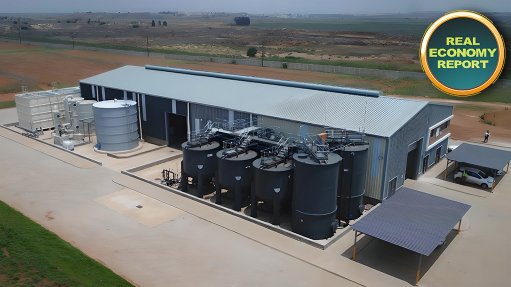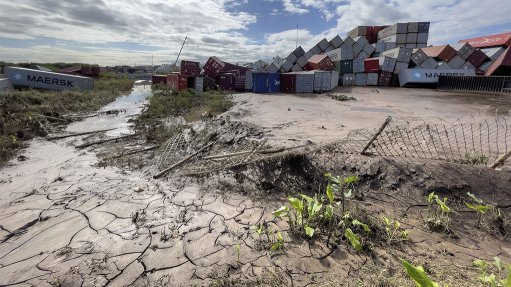Africa now polio free
There is much depressing news around these days, from the havoc that the Covid-19 pandemic is wreaking on countries – in the health, economic and social senses – to tyrants continuing to ride roughshod over citizens in several African countries while multilateral bodies such as the African Union and the Southern African Development Community look the other way. Of course, the Economic Community of West African States is a refreshing exception. It does not have time for those whose conduct is inimical to democratic values. A handful of West African tyrants will attest to that.
In the midst of this glut of bad news, it was quite refreshing to learn, towards the end of last month, of a development that should be a cause for celebration for sub-Saharan Africa: the region has officially stamped out the wild poliovirus, which once paralysed 75 000 children on the continent every year. North African countries have not reported wild poliovirus cases since 2004, which means the entire continent is now free of the virus.
This milestone is a major stride towards ridding the world of the virus that causes polio, a disabling, and sometimes fatal, disease. Now that Africa is polio free, Afghanistan and Pakistan are the only countries still reporting cases.
According to the World Health Organisation (WHO), about 1.8-million cases of polio-related paralysis had been prevented over the past 24 years, thanks to efforts such as the Global Polio Eradication Initiative, which was launched in 1988 to rid the world of the virus by 2000.
Nigeria was something of a hindrance to efforts to eliminate the wild poliovirus, which have gained the support of high-profile individuals like Microsoft founder Bill Gates and Nigerian billionaire Aliko Dangote. Communities in the north-east of the country started boycotting polio vaccination in 2003, following rumours about its safety. Within five years, an outbreak in that insurgency-plagued part of Nigeria had spread to 20 countries.
It took a huge effort, coupled with a major intervention by the global health infrastructure and the Nigerian military, to change attitudes about the polio vaccine. When the military assured vaccinators that an area was safe from Boko Haram insurgents, the vaccinators would move in within 48 hours and conduct vaccinations. Thanks to this ‘hit and run’ strategy, more than 800 000 children were vaccinated in 2016. Others were vaccinated at markets on the edge of Boko Haram-occupied territory when they came to buy provisions.
Commenting on the end of the wild poliovirus on the continent, WHO regional director for Africa and Botswana national Dr Matshidiso Moeti enthused: “Future generations of African children can be free of wild poliovirus.”
This health milestone, however, does not signal the end of all polio in Africa. Every year, hundreds of people across the continent still get infected with circulating vaccine-derived poliovirus, which can infect people in areas where there is only partial vaccination. African cases of the vaccine-derived strain – which causes the same symptoms as the wild variety – increased from 68 in 2018 to 320 last year.
There are fears that more vaccine-derived polio cases will be reported this year, as will other vaccine-preventable diseases. As the WHO has pointed out, many countries have suspended inoculation programmes, fearing that the coronavirus would spread swiftly when children gather for shots. Even in countries that have carried on immunising children, cargo flights carrying vaccines and other medical supplies were halted by the pandemic and health workers who would otherwise be involved in vaccination programmes redeployed to attend to Covid-19 patients.
Now, according to the WHO, a mutated strain of the poliovirus has been reported in more than 30 countries, while diphtheria is appearing in Pakistan, Bangladesh and Nepal and cholera has been reported in South Sudan, Cameroon, Mozambique, Yemen and Bangladesh.
Of the 29 countries that have suspended measles campaigns because of the campaign, 18 are reporting outbreaks.
Comments
Press Office
Announcements
What's On
Subscribe to improve your user experience...
Option 1 (equivalent of R125 a month):
Receive a weekly copy of Creamer Media's Engineering News & Mining Weekly magazine
(print copy for those in South Africa and e-magazine for those outside of South Africa)
Receive daily email newsletters
Access to full search results
Access archive of magazine back copies
Access to Projects in Progress
Access to ONE Research Report of your choice in PDF format
Option 2 (equivalent of R375 a month):
All benefits from Option 1
PLUS
Access to Creamer Media's Research Channel Africa for ALL Research Reports, in PDF format, on various industrial and mining sectors
including Electricity; Water; Energy Transition; Hydrogen; Roads, Rail and Ports; Coal; Gold; Platinum; Battery Metals; etc.
Already a subscriber?
Forgotten your password?
Receive weekly copy of Creamer Media's Engineering News & Mining Weekly magazine (print copy for those in South Africa and e-magazine for those outside of South Africa)
➕
Recieve daily email newsletters
➕
Access to full search results
➕
Access archive of magazine back copies
➕
Access to Projects in Progress
➕
Access to ONE Research Report of your choice in PDF format
RESEARCH CHANNEL AFRICA
R4500 (equivalent of R375 a month)
SUBSCRIBEAll benefits from Option 1
➕
Access to Creamer Media's Research Channel Africa for ALL Research Reports on various industrial and mining sectors, in PDF format, including on:
Electricity
➕
Water
➕
Energy Transition
➕
Hydrogen
➕
Roads, Rail and Ports
➕
Coal
➕
Gold
➕
Platinum
➕
Battery Metals
➕
etc.
Receive all benefits from Option 1 or Option 2 delivered to numerous people at your company
➕
Multiple User names and Passwords for simultaneous log-ins
➕
Intranet integration access to all in your organisation


















